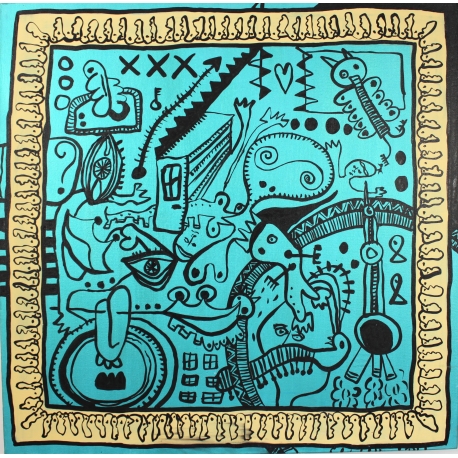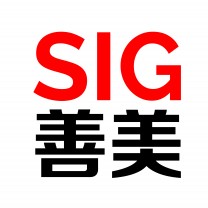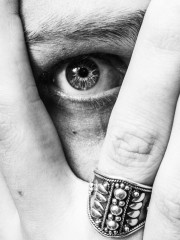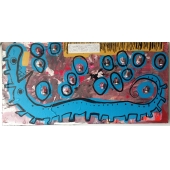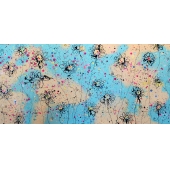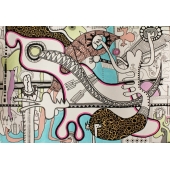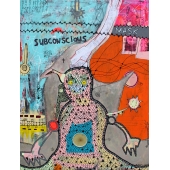一切总是最好的安排(第一部分)
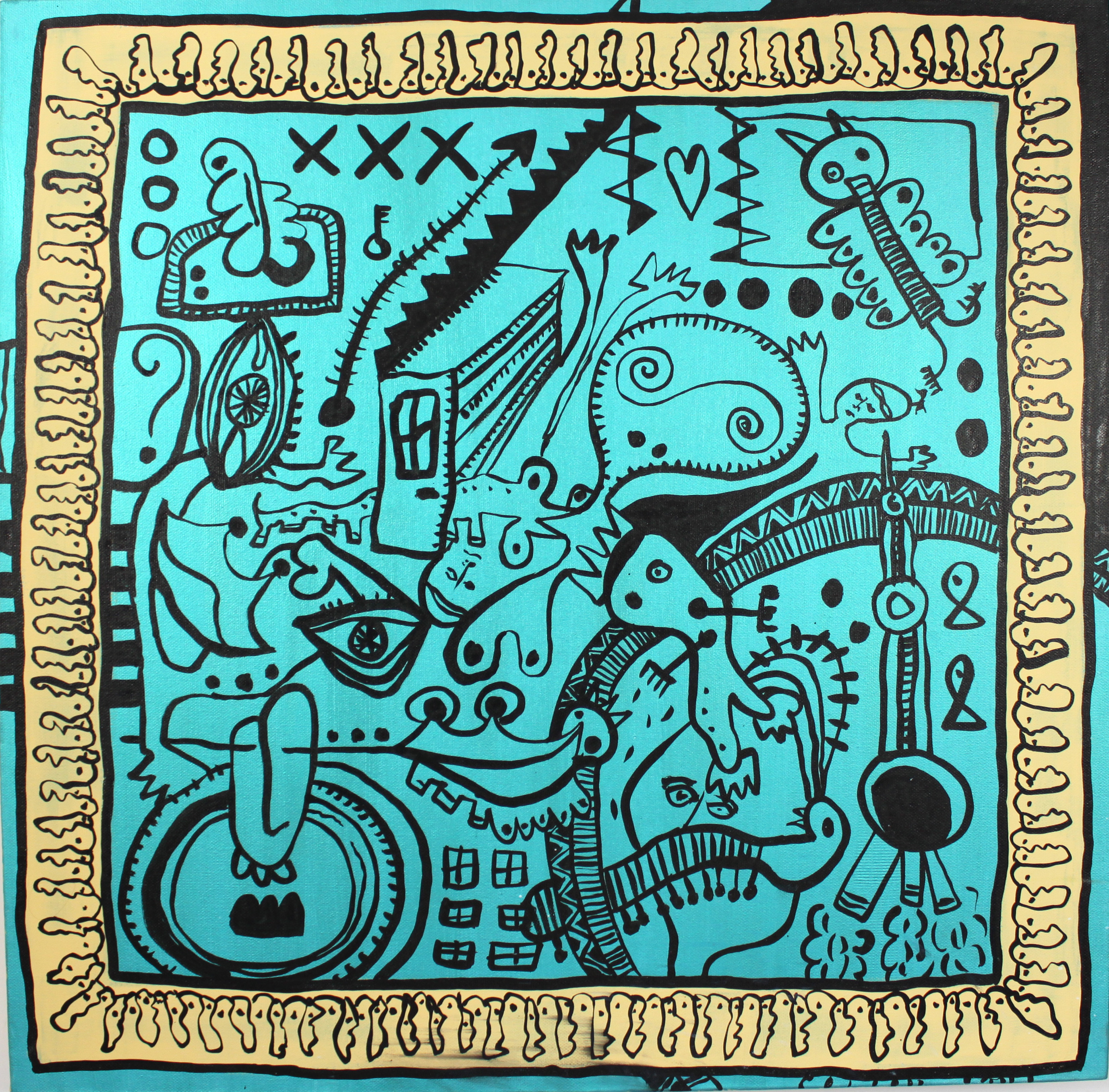
- 资质:
- 评分:
1分 2分 3分 4分 5分 6分 7分 8分 9分 10分 9.5分
- 印象:
- 经营时间:13年
- 展厅面积:5000平米
- 地 区:北京-西城-其他
| 尺寸 | 95x95(cm) | 创作年代 | 2014年 | ||
|---|---|---|---|---|---|
| 作品分类 | 综合材料 | 材质 | 木材 | 题材 | 抽象 |
| 作品标签 | |||||
| 适用空间 | 客厅 餐厅 书房 儿童房 卧室 办公室 酒店 酒吧 购物中心 | ||||
作品介绍
ABOUT ‘EVERYTHING IS ALWAYS THE BEST ARRANGEMENT’
关于《一切总是最好的安排》
作品《一切总是最好的安排》是卡弗拉斯受到一个关于国王和丞相的中国故事所启发创作的。
有一次,国王和丞相一起打猎。在打猎时,国王受伤了,失去了他的小指头。丞相说:『一切总是最好的安排。』国王非常生气,把丞相关进监狱,丞相回复说:『一切总是最好的安排。』国王说:『让我们看看!』国王把首相关进监狱后,一个人出去打猎。这一次,他被一群吃人族抓住了,他们要把国王献给他们的神。国王很害怕。当食人者试图杀死国王时,他们发现国王失去了一个小指头。食人族很生气,认为国王不是个『完美的』的祭品,於是让国王离开了。国王回到宫殿,立刻释放了丞相,告诉他发生了什么事,和自己有多么幸运。『一切总是最好的安排。如果我没有失去我的小手指,我已经被那些吃人族杀了!我很抱歉把你放进监狱。』首相笑着说:『没有什么需要道歉的。如果我不是在监狱里,而是和你一起去打猎。我将是那个被杀掉的『完美的』祭品。所以,一切总是最好的安排!』
读到这个故事,卡弗拉斯受到很大启发,于是他按照自己的理解和上海的生活,创造了这三张《一切总是最好的安排》。
第一幅画中的正方形代表架构,里面的脸代表对架构的质疑。画面中间有很多上海元素,你可以看到东方明珠塔,也可以看到许多抽象的图象。这些图象实际上意味着在中国在上海的每一个外国人,他们都觉得中国有很多的机会、很多的可能性、很多事情可以发生,但是总不是非常顺利。『XXX』是阿姆斯特丹的城徽,它代表了荷兰的带给艺术家的影响。门意可以通往一个像家一样的安全地方,也可以是开放的冒险机会,现在你还不知道。关键是你要找到打开门的钥匙。楼梯意味着你需要走上去好好了解。随着楼梯的移动,你到了第二封作品。中间的圆圈意味着完满的生活。圆圈里有一个大螺旋形的,这意味着你必须要走出去、成长,变得越来越强大。这些图象可以解读为动物或有机生命,对卡弗拉斯来说,他们代表着在一般的社会生活。在最后一幅画里,你可以看到底部的波浪。它让你跟它一起流动,让事情自然发生。不管发生什么事情,它总是最好的安排。上海的生活相当纸醉金迷,到处都是高楼大厦,於是卡弗拉斯使用不同货币标志拼成『上海』。小迷宫意味着你需要找到你自己的出路,在画面上拼写『集中』而这个词的重点是你需要专注于成长,继续前进,并且一直保持敏锐。
The work Everything is Always the Best Arrangement is inspired by a Chinese story about a King and his prime minister.
The King went hunting with his prime minister. During the hunting, the King was injured and lost his little finger. The prime minister said „Everything is always the best arrangement.‟ The king was really angry for what the prime minister said and put him in jail, the prime minister replied „Everything is always the best arrangement.‟ The King said, "Let‟s see!"
After putting his prime minister in jail, the King went hunting again, alone. This time he was caught by a group of man-eaters and they were going to make him the sacrificial offering to their god. The King was very scared. When the man-eaters tried to kill the King, they discovered the King has lost a small finger. The man-eaters were very angry and think the King is not „perfect‟ as a sacrificial offering and let the King go.
The King went back to the palace, released his prime minister at once, told him what happened and how lucky he was. „Everything is always the best arrangement. If I did not lose my little finger, I had already been eaten by those man eaters! I am very sorry to put you in jail.‟ The prime minister laughed and said, „There is nothing to feel sorry about. If I was not in jail and went hunting with you, I would be the “perfect” offering being eaten. Therefore, everything is always the best arrangement.‟
Kavelaars read about this story and feel very inspired, hence he created these three paintings with his own interpretation of „everything is always the best ar-rangement‟, and life in Shanghai.
The square in the first painting is something struc-tured. The faces inside are questioning the structures. There are a lot of elements from Shanghai inside the square. You can see the Pearl Tower for example, and you can also see many abstract figures. These figures actually mean every single foreigner in Shanghai, in China. There are a lot of opportunities, a lot of possibili-ties, a lot of things that could work, but not in a really fluent way. “XXX” means Amsterdam. It represents the influ-ences from Holland. The doors mean it can either be a safe place like home or it can be the opening for adven-turous opportunities that you do not know yet. They key is what you need to find to open the doors. The stairs mean you need to go up to understand.
The stairs move on in the second painting. The circle in the middle means things need to be rounded in life. There is a spiral to go in and out in the circle, it means you have to go out and grow, to get bigger and bigger. All the figures can be animals or organic forms, for Kavelaars, they mean life and society in general.
In the last painting, you can see wave at the bottom. It is more like you go with the flow and let things happen. It does not matter what happens, it is always the best that could happen. Life in Shanghai is quite money-based with big towers everywhere. Kavelaars use different currency signs to spell SHANGHAI. The little maze means you need to figure out your own way out, and the word FOCUS means you need to focus on grow, to move on, and to be sharp all the time here.
作者介绍
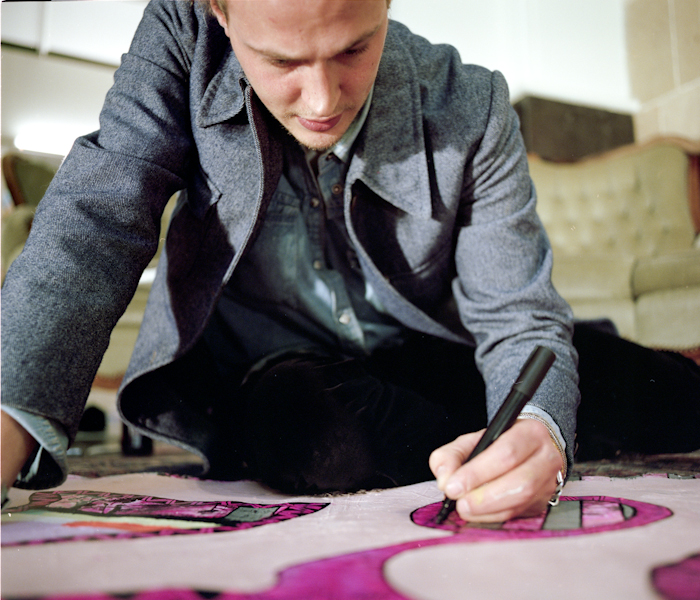
卡弗拉斯(生于1985年)自幼就受表演艺术家父亲的影响,经常看他亲手绘制自己的装扮。他充满感情的回忆着那些日子说道:“我经常陪着他去表演现场,并一直被颜色包围着。就在那是我学会了颜色的真正意义。对于我来说,色彩就是情感。”
从那时起,卡弗拉斯就觉得自己应该做一些通过色彩和艺术表达自己的事情。当他带回画布和颜料时,一些画作就成形了:“我可以为我的艺术作品倾注所有。我无法用语言来表达的东西,我可以用绘画表达出来。这几乎成了一种附加条件:我挑战自我并融入到日常生活中。”
卡弗拉斯使用各种各样的绘画技法应用在不同的层面上,从而创作出不同的绘画特征。他会在同时创作不同的几幅画作。“我会固定下来第一层面:一种颜色,形状,不管是对立的还是一种释放性质的,然后我就把画布放在一边。也许一放就是一个月,甚至是半年,直到我再次看到它然后意识到我接下来要对它做的是什么。”
对于卡弗拉斯来说,旅行是最大的灵感来源。“遇见新的人物,发现新的地方,形成新的思维,这些都是我的创作动力。”他的梦想是环游世界,并在所到的城市进行创作。卡弗拉斯目前生活工作在上海。他之前在阿姆斯特丹拥有自己的个人画廊,并在巴黎、哥本哈根,阿莫斯特丹和上海举办过艺术展览。
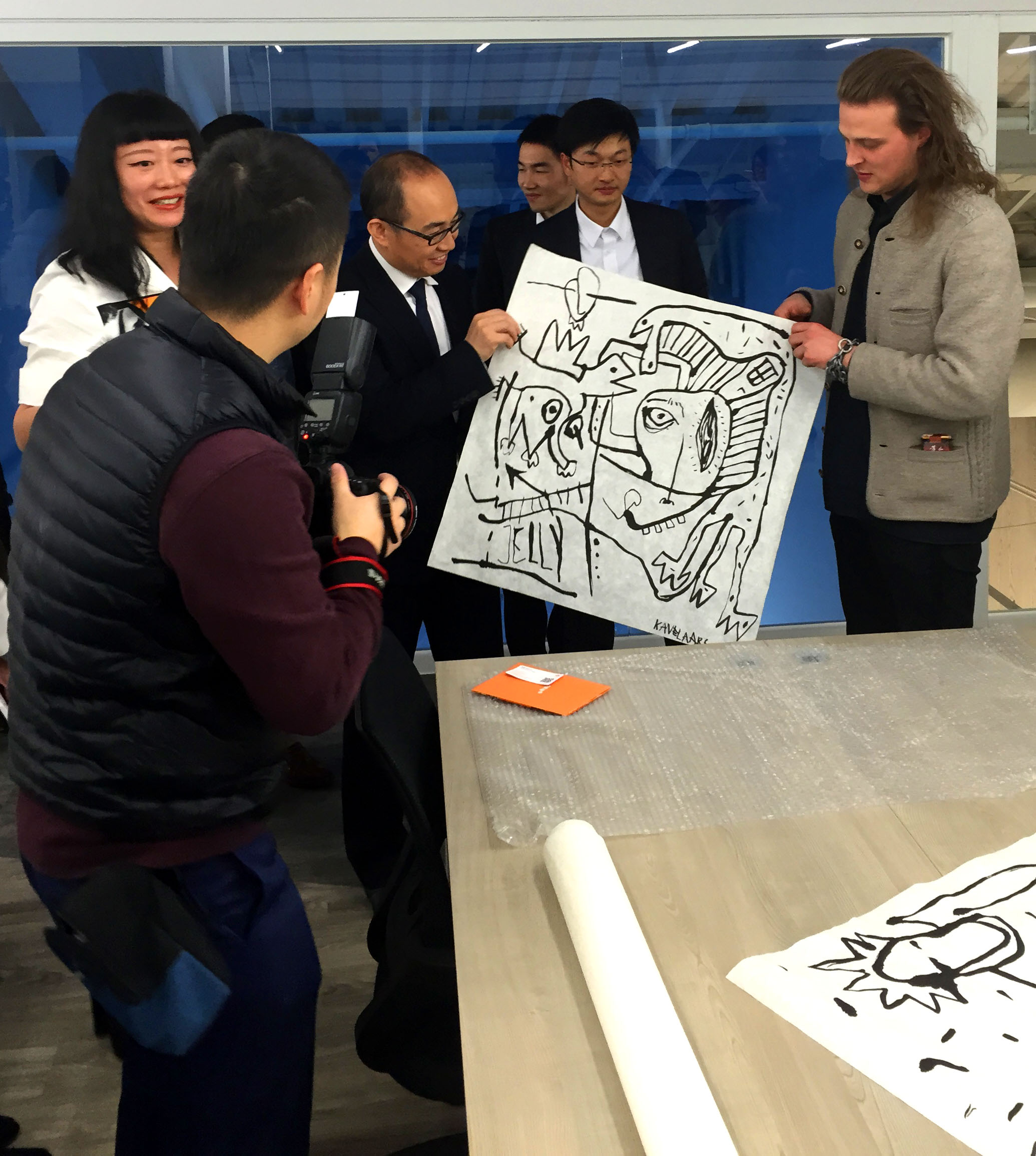
Growing up Merijn Kavelaars (1985) watched his father working as a performing artist and painting his own decors. He thinks back fondly of those days: “I always accompanied him to his shows and was constantly surrounded by color. That‟s when I learned the true meaning of color. For me, color is emotion.”
From that moment on Merijn felt he would some-day express himself through colors and art. When the day came he bought a canvas and some paint, the pieces fell into place: “I can pour everything into my work. What I can‟t express with words, I can say with paint. It‟s almost an addiction: I challenge myself and evolve on a daily base.”
Merijn uses all different kinds of paint and applies many layers to create character and dept. He works on several paintings at a time. “I set down the first layer: one color, shape, contrast or relief, and then I put the canvas away. Maybe for a month, maybe for half a year, until I see it again and know: this is what should happen next.”
For Merijn traveling is his biggest inspiration. “Meeting new people, discovering new places, forming new thoughts and motivations; that is what drives me.” His dream is to travel the globe and work in the cities he's visiting. Merijn cur-rently lives and works in Shanghai. He previously ran his own gallery in Amsterdam and exhibited his work in Paris, Copenhagen, Amsterdam and Shanghai.
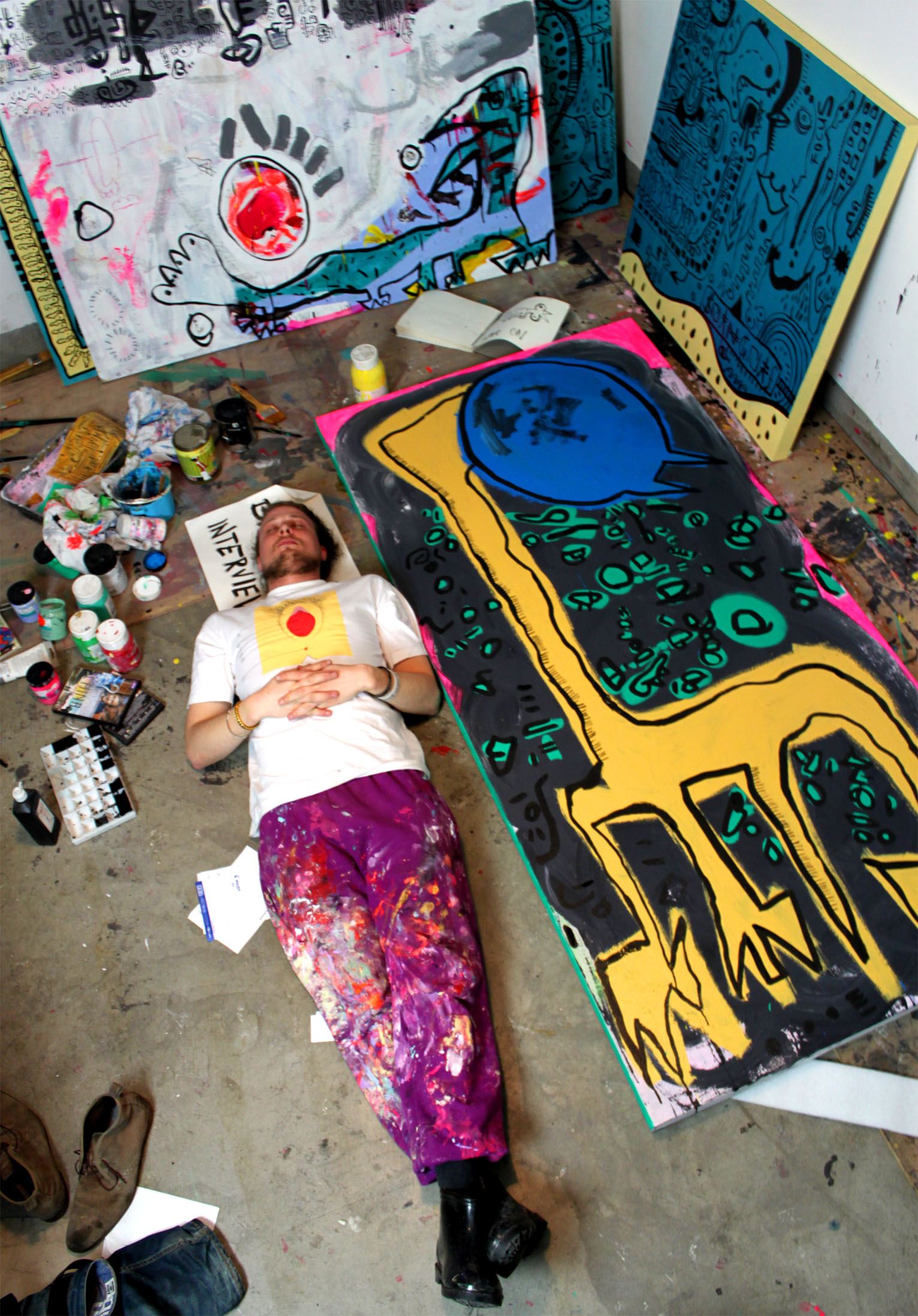

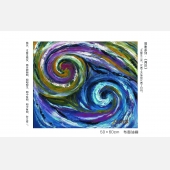 庞明璇
庞明璇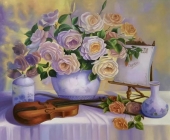 未知
未知 张大千
张大千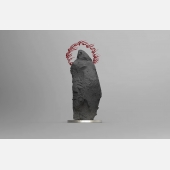 马文甲
马文甲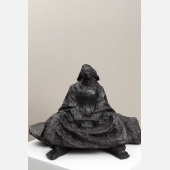 李秀勤
李秀勤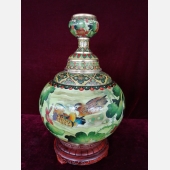 米振雄
米振雄 康蕾
康蕾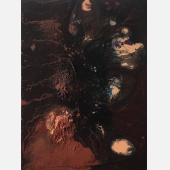 陆阳彬
陆阳彬